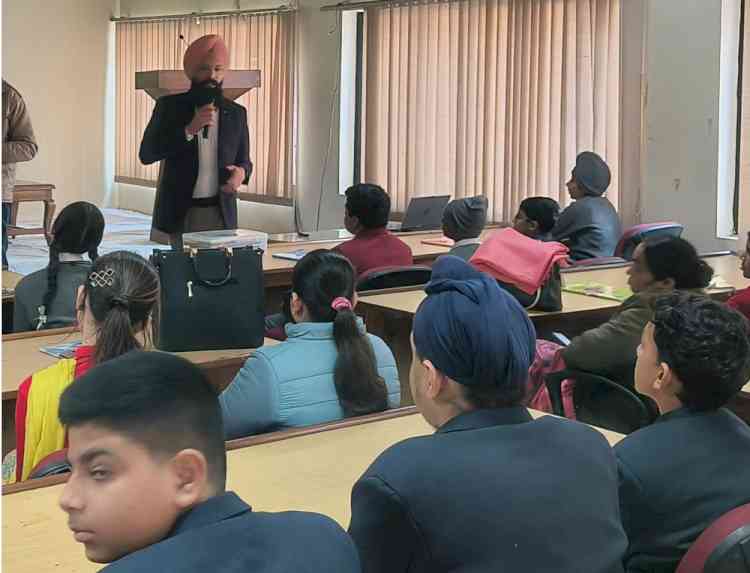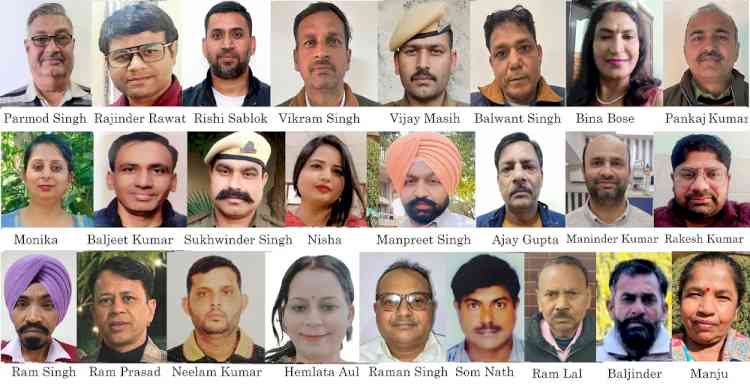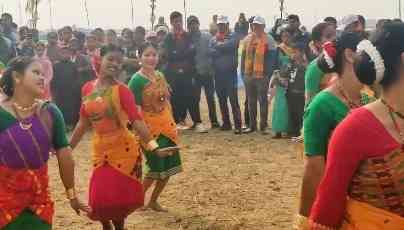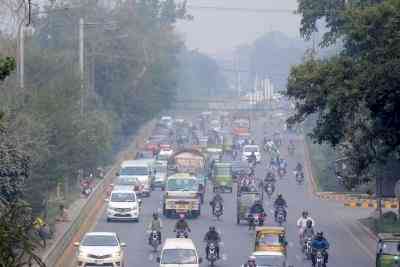2nd International training program on climate smart farming practices commenced at Amity University
During the technical sessions, Dr.Sohela Akhter, Director, Tuber Crops research Centre, Bangladesh Agricultural Research Institute shared ideas
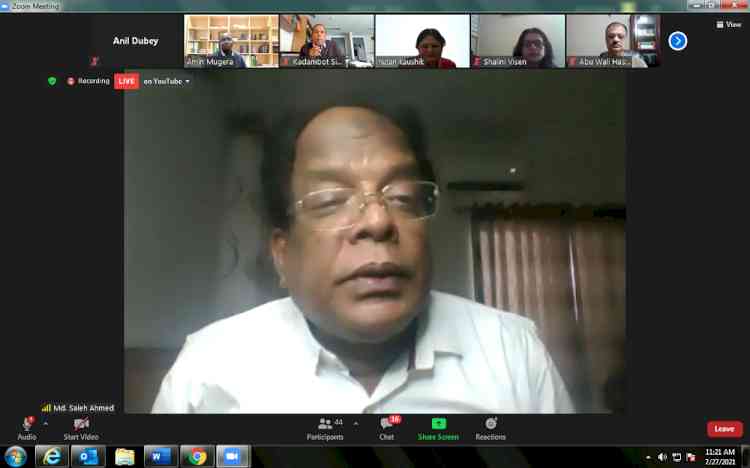
To address the challenges of climate change and enhance the capabilities of farmers using climate smart agriculture strategies, Amity University organized a two day international training program on "Climate Smart Farming Practices". The program was organized in collaboration with University of Western Australia; Kernel Foundation, Bangladesh; and Kabul University, Afghanistan. During the program, experts from various institutions of the country and abroad, including scientists, research scholars, academicians, entrepreneurs shared their views on Climate Change and laid down solutions.
Prof. Amin Mugera, Senior Lecturer (Associate Professor), UWA School of Agriculture & Environment (SAgE),The University of Western Australia (UWA) shared his thoughts on the farmers adoption of gypsum and laser land leveler as a climate-smart strategy to control soil salinity and conserve groundwater. Prof. Mugera said the main challenges under climate change are water scarcity in the soil, increased need for irrigation, high cost of production, change in land use and water and food security. Under soil salinity, there is excessive use of ground water, water logging, soil erosion etc. leading to reducing food productivity, which has put livelihood in danger. Sharing information about the use of gypsum and laser land leveler technology, he outlined the main challenges such as the role of technology adoption in the developing country, the pace and speed of adoption and its impact . He offered solutions to the farmers such as to develop property rights for land ownership, improve access to credit, invest in information and exposure about innovations, invest in rural infrastructure and avail smart subsidies.
He gave detailed information about the research done in Punjab and Pakistan, in which the adoption and effect of gypsum and laser land leveler technology were implemented which were highly successful.
Dr. Md. Saleh Ahmed, Chairman, Kernel Group of Companies provided information on climate smart agriculture technologies in sustainable crop production by the farmers of Bangladesh and stated climate in Bangladesh is variable, summer season being extremely hot, erratic rainfall, increase in flow of rivers during monsoon, heavy rains causing water logging, increase in frequency of floods and cyclones, thereby causing damage to crops. He said that the ongoing climate change has also affected the productivity of crops. Elaborating on climate smart technologies at various hotspots, he explained the smart practices to be followed in flood hotspots, waterlogged hotspots, high salinity hotspots and drought hotspots. Explaining the CSA practices implemented by the production system in Bangladesh, he suggested following solutions such as to have an ecosystem based approach, integration of nutrition and soil management, crop diversification amongst others.
Dr. Nutan Kaushik, Director General, Amity Food & Agriculture Foundation, Amity University said Climate change has affected both the demand and supply of water, increased floods and droughts, and affected food production. Change in crop diversity, change in cropping pattern, change in crop calendar, land management, water management and conservation, livestock waste management, practices of agroforestry should be adopted to adapt climate change. She said that through this training program, participants will get information about the modern techniques being adopted in the agriculture sector which will develop the capacity of farmers in climate change.
During the technical sessions, Dr.Sohela Akhter, Director, Tuber Crops research Centre, Bangladesh Agricultural Research Institute shared ideas on "Climate Smart Agriculture: Technology Options for Combating Climatic Variability in Bangladesh"; Mr. Abdurrahman Manan, Senior Agriculture Advisor, ICARDA will provide information on “Climate Smart Agricultural Strategies directed through MAIL and other stakeholders in Afghanistan"; Mr. S.S. Hakimi, Assistant Professor, Kabul University will brief on “ Impact of Climate change in Afghanistan, climate-smart agricultural practices and the contribution of APN project” amongst others.


 cityairnews
cityairnews 
